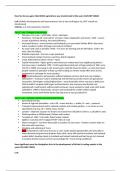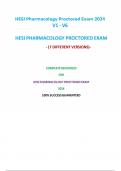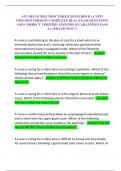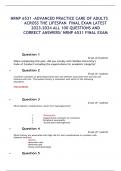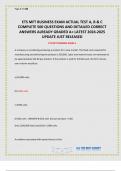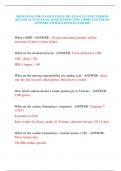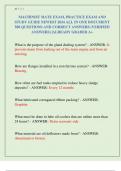Other
A/A* Student's essay plans for Stuart Economy (A-Level History, Unit 1C, Stuart Britian : conflict, revolution and settlement, Pearson Edexcel)
- Institution
- PEARSON (PEARSON)
This document provides a set of essay plans for responses to past paper questions (complete with criteria, numerous factors, a line of argument, and detailed evidence) for the Economy sub-topic of Unit 1C 'Britain, : conflict, revolution and settlement'. These essay plans can serve as a guide for a...
[Show more]
